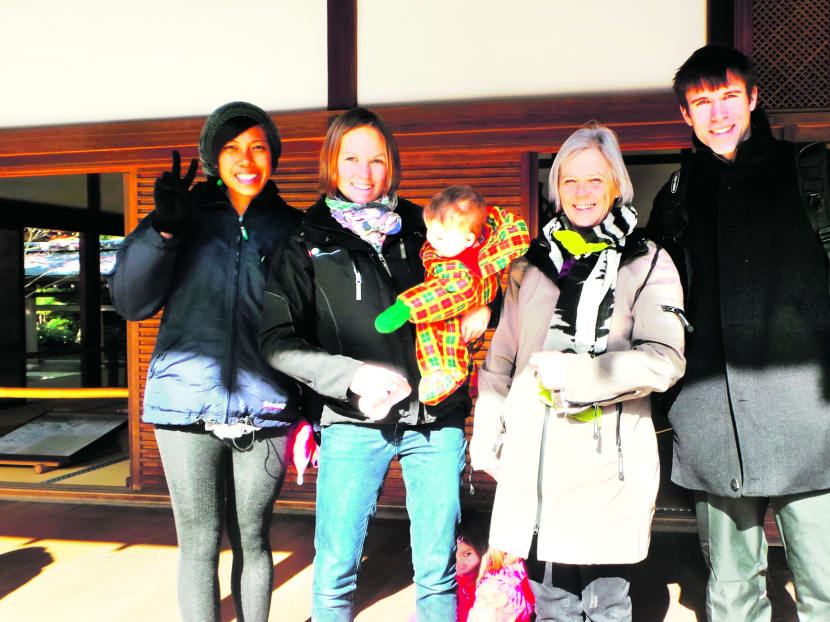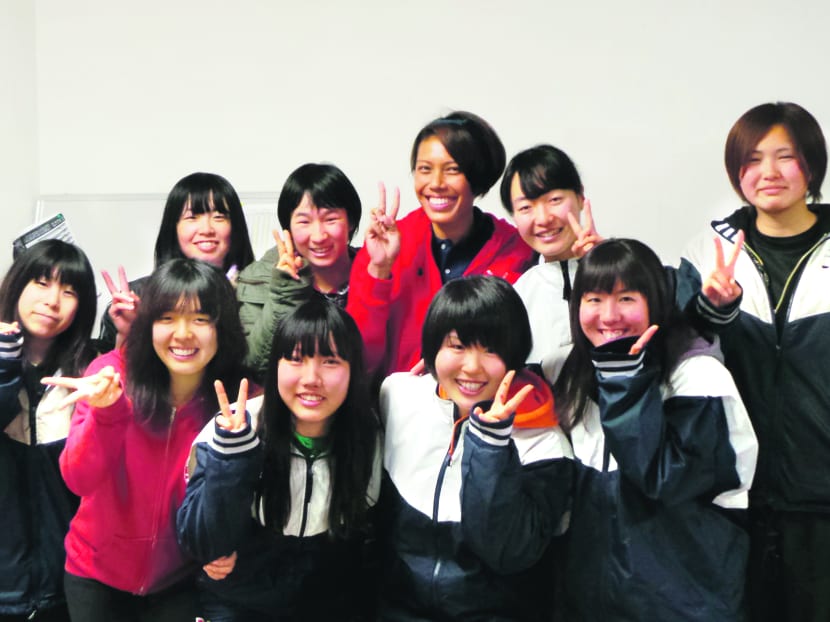Rowing on the SEA Games momentum
SINGAPORE — She may not have received the biggest cash reward for her South-east Asian (SEA) Games gold-medal effort, but at the Multi-Million Dollar Awards Programme (MAP) Award and Appreciation Lunch last Friday, rower Saiyidah Aisyah Mohd Rafa’ee — who received S$10,000 for her triumph — was far and above the most popular figure, judging by the number of people who wanted to shake her hand and take a snapshot with her.


SINGAPORE — She may not have received the biggest cash reward for her South-east Asian (SEA) Games gold-medal effort, but at the Multi-Million Dollar Awards Programme (MAP) Award and Appreciation Lunch last Friday, rower Saiyidah Aisyah Mohd Rafa’ee — who received S$10,000 for her triumph — was far and above the most popular figure, judging by the number of people who wanted to shake her hand and take a snapshot with her.
It is perhaps also a measure of Aisyah’s popularity, and the impact of her feat last December when she became the nation’s first rower to strike gold at the biennial regional games, that 19 aspirants signed up for the Singapore Rowing Association’s open trials that took place last Saturday at the Pandan Reservoir.
It has been a while since the annual trials attracted this many participants, and the handful of committed rowers who join Aisyah in training usually during the weekends definitely welcomed the addition of the 14 men and five women to their ranks, which also included national hurdler and SEA Games bronze medallist Dipna Lim-Prasad, who was Aisyah’s room-mate at the Games Village in Myanmar.
Certainly Aisyah, who is Singapore’s singular women’s national rower, would love to have more training mates, having enjoyed the warmth and camaraderie of training within a rowing community on a recent 10-day trip to Japan.
Earlier this month, the 25-year-old took up an invitation to participate in the 26th Japan Indoor Rowing Championships in Otsu City where she topped her lightweight class — and touched snow for the first time.
Apart from Aisyah, the organisers also invited Danish couple Mads and Juliane Rasmussen for the event. Mads is a two-time world champion (2006 & 2007) and 2012 Olympics gold medallist in men’s lightweight double sculls, while Juliane came in fourth in the women’s lightweight double sculls at the London Games.
Other than learning from the Olympians, Aisyah also enjoyed the company of members of the Kyoto University Rowing Club who impressed her with their dedication to the sport.
“It was a good experience because for a start, I got to train with a group of girls, and even as university students they commit their lives to rowing and they are not even representing Japan,” said Aisyah, who took leave from her job as student development manager at Ngee Ann Polytechnic for the trip.
“They wake up at 4am for training, in freezing weather, and have to cycle 20km to their school, then cycle back again for training.
“And there were about 30 to 40 of them, which was great since here in Singapore I usually train alone.”
For Aisyah, training with the Rasmussens was also memorable.
“They taught me lots of stuff and gave me some tips on rowing, such as the weight I should keep during the off-season, and how to do a good 2km on the ergometer (rowing machine),” she said. “It’s amazing the scores they can reach even though they are lightweights, like most Asian rowers.”
Apart from helping to grow the community, Aisyah’s target for this year is to qualify for September’s Asian Games in Incheon, South Korea. To that end, the brains trust consisting of her coaches — Australian Alan Bennett and Goken Sakamoto of Japan — and the Singapore Rowing Association’s head of training, Razemin Omar, will be getting together to plan Aisyah’s 2014 programme. Said Sydney-based Bennett: “I hope we’ll be able to come away with a plan of what we want to do, where we want to do it, and how it would be funded.”
Bennett, who is the Sports Development Officer for Rowing New South Wales, has little doubt of the need for a full-time coach here for rowing to grow.
“Without a full-time coach, it will be hard for the rowers to understand fully what it takes to train, the steps one has to go through — from the fundamentals to ‘training to train’,” he said. “Rowing is a very technical sport and needs continuous coaching.
“One of the reasons Aisyah made the improvements that she did was to have technical coaching everyday (during her 10-week stint in Sydney prior to last year’s SEA Games), and training in a group environment with like-minded people of the same or better standard.”





